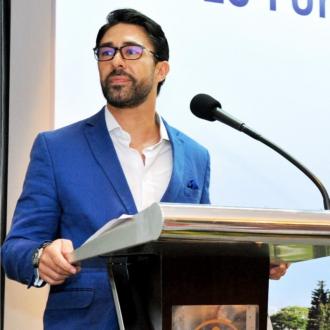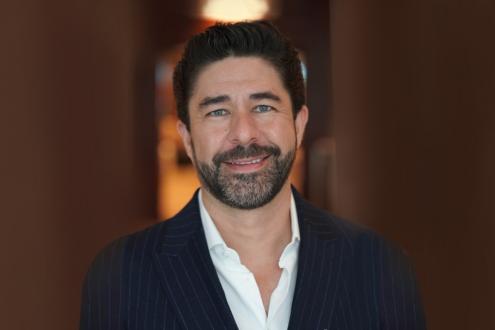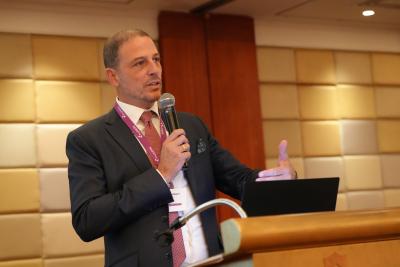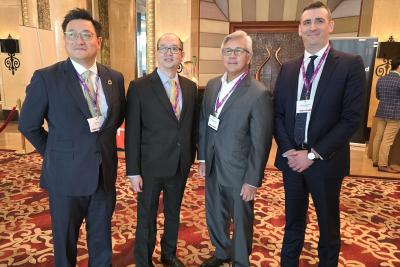Citizenship and Residency – Opportunities and Trends for the Year Ahead

Ian Horsburgh of Henley & Partners
Sep 6, 2022
The Hubbis Indonesia Wealth Management Forum took place in Jakarta on July 6, during which Ian Horsburgh, Country Head of Indonesia at Henley & Partners, offered delegates a detailed and insightful presentation into the merits of considering, selecting and then taking up investment migration options around the world. With a background in wealth management, Ian, who is a Certified Financial Planner, has extensive experience dealing with high-net-worth profiles and providing them with advice on global residence and citizenship planning. Henley & Partners is a well-known, leading global investment migration specialist that works both on devising programmes for governments across the world, and also on advising private clients on how to filter the options available and then how to professionally execute those decisions. We have summarised some of his observations in this short report.
Hubbis has worked closely with Henley & Partners for several years, helping them promote their investment migration activities to wealth management partners and clients in the region. Henley has championed the investment migration industry for more than two decades.
The firm has grown especially rapidly in the past five years, particularly since the start of the pandemic. The firm has expanded its global footprint fairly aggressively, with 35 offices globally today, and plans to open another 12 or possibly even more offices this year, including new offices in the Middle East, Africa, and South America.
Henley’s two core activities
The firm has two core businesses, one advising private clients on their options and then helping them execute, and the second advising government on the inward investment migration programmes.
In the world of private client advice, Henley works closely with the wealth management industry and associated professions. The firm’s advisors are in constant liaison with private bankers, private client lawyers, financial advisors, IAMs, tax advisors, corporates, fiduciary companies, and others who refer clients.
Ian told delegates that he is country head for Indonesia, a very important market for the firm, and is based in Singapore, where most of the business is processed.
Citizenship or residence?
He said it is important to distinguish between residence and citizenship. Citizenship is a permanent state, providing voting rights, it can be passed through generations, whereas residence is a revocable or temporary state. “We're all familiar with the restrictions in Indonesia when it comes to dual citizenship, so today I shall focus largely on residence,” he explained.
Armed with an excellent slide show, he said domicile diversification offers a hedge against country specific risk. “I'm British myself, my wife is Indonesian, as is my son,” he told guests. “We're visiting Malta next month for a family holiday, and we're currently going through the Schengen visa application, which is incredibly laborious. Travel mobility that can be gained through being a resident of a second jurisdiction can be very valuable.”
All sorts of advantages
He cited other advantages such as entrepreneurial resilience for businesses. Education of family members is incredibly useful. Access to better healthcare is remarkably important.
“COVID-19 has driven a lot of my clients to really consider optionality when it comes to healthcare, and many other factors,” he said. “And residency options help in future proofing for your family, offering more choice to generations down the line.”
He then turned to key programmes that Henley & Partners promotes, including Australia, Singapore, Greece, Malta, Portugal, Canada, the United States, five of the Commonwealth Caribbean islands.
He then went on to compare and contrast some of the key programmes, zooming in on Greece and Portugal within Europe.
Greece beckons
In Greece, he reported, the government processing time is two to three months, and it is a member of the Schengen border-free zone, so as a resident of Greece, anyone has the right to live, work and study in Greece, and also, visa on arrival access to the rest of the Schengen area. The minimum investment is EUR250,000 through real estate investment, which the applicant must hold as long as they wish to remain a resident in Greece.
There are two visits required as part of the application process, but once resident, there is no minimum residence required to maintain that status. There is also a pathway to citizenship in Greece, although that will mean relocating to Greece and spending the majority of their time there in order to really be on that path towards naturalisation.
Portugal’s attractions
Portugal, he explained, is the standout residence-by-investment programme in Europe. Just as with Greece, a Portuguese residence card will allow anyone who is successful in their application to live, work and study in Portugal without limitation, and travel within the EU without borders.
There are two key routes in. For an investment of EUR500,000 committed into funds, generally a mutual fund or a VC fund, or a property acquisition of non-prime commercial real estate. A second option is at EUR280,000 that is allocated to buying and refurbishing a property over 30 years old, and that is in a low population density area.
“This is for my clients the most popular route, and we work with a number of vetted real estate developers that work with some of the leading hotel chains,” he explained. “What they usually do is take a historical building for development, then tag a brand name modern hotel on the side and often coming with a guaranteed buyback. It's a managed investment, which also gives you an entitlement to visit for between 7 and 14 days a year, and the buyback removes concerns about resale on the open market.”
He explained that including fees and other costs, the total comes to around EUR335,000, of which EUR280,000 is effectively recoverable. And the more expensive option of EUR500,000 comes out at EUR537,000 including fees and costs.
He also outlined the potential for citizenship, noting that this requires a minimum stay of 7 days each year for five years, or 35 days in total. You need to pass the A2 level Portuguese language exam, which is conversational level of Portuguese. And children under 18 can be included, and future unborn generation, meaning citizenship by descent.
See you Down Under
Ian then turned to Australia, another major favourite for Henley & Partners and many wealthy individuals and families. “It is close to Indonesia, and the Australian Global Talent Programme allows access to individuals across key listed industries, including for example FinTech,” he reported. “It requires no investment or minimum stays and is rapid in approvals.”
Another entry point is the SIV – the Significant Investor Visa, but that requires a minimum investment of AUD5 million into a government-approved fund. The main needs to only spend 160 days in Australia within four years, so an average of 40 days a year to qualify for permanent residence. And approval includes all children under 22.
There are many good alternatives
He then turned back to focus on other programmes briefly. Malta, he said, is the gold standard in citizenship programmes. Technically a residence programme, requiring 12 months of residence before anyone can apply for citizenship. This means within two years the applicant can be a citizen of an EU country. The minimum contribution for this programme is EUR738,000 donation, which is a sunk cost, which Ian said many of his clients see as a one-time donation as a wealth tax in order to secure their status there and that of their future generations.
Montenegro is not a member of the EU but hopes to achieve that by 2025. Montenegrin citizenship, Ian reported, will provide a visa on arrival throughout the Schengen area, which is a value add for a lot of people. There are different levels of relatively modest investment required, depending on the location of, for example, real estate investments.
He also highlighted the five preferred Caribbean options, as appealing, good value and offering fairly rapid processing.
Look ahead, plan for the family’s future
Looking at the big picture, the message coming from Henley & Partners today is that investment migration historically was more centred around people physically wanting to move, but now it is more for building flexibility and resilience around the individual’s and the family’s wealth. Henley often see clients acquire two, three, four different residence permits around the world. Why? Because the more diversified your residence options are, the better prepared you are for the future and the greater your flexibility. They promote it as part and parcel of a well-diversified approach to wealth and planning, alongside overseas assets, overseas residences and so forth.
Families with genuine wealth often wish to see their children or grandchildren educated overseas and for family members to spend plenty of time with them. The pandemic has concentrated minds on healthcare and all types of security and privacy. Families increasingly have business and personal assets across different jurisdictions. And there are always the political and geopolitical concerns at home or nearby that encourage HNWIs and UHNWIs to take up such residence or citizenship options. Accordingly, there is real value in such diversification via investment migration.
Working with the wealth community
Ian closed his presentation by appealing to the assembled intermediaries to consider raising such issues with their own private clients, and then working harmoniously with Henley & Partners to help these clients realise their hopes and missions.
“Let's all get together,” he said. “My job is to stay close to intermediaries, trust companies, high net worth focused insurance companies, law firms, private bankers and EAMs and family offices, and to work together to help clients with a solution maybe they perhaps didn't even know about. “This is now a valuable part of astute, forward-looking wealth, estate, and succession planning. My door is open.”

Country Head of Indonesia at Henley & Partners

More from Ian Horsburgh, Henley & Partners
Latest Articles






